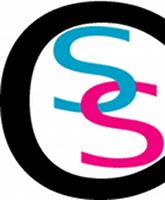University of Arizona
This talk will discuss the nature of quantitative literacy and how it differs from mathematics. I will argue that the development of quantitative literacy in our students requires the collaboration of faculty at all levels and in many different disciplines. Examples will be given of the kinds of thinking that we would like to see students acquire, and of the types of collaboration needed.
Deborah Hughes Hallett is Professor of Mathematics at the University of Arizona and Adjunct Professor at the Kennedy School of Government, Harvard University. With Andrew M. Gleason at Harvard University, she organized the Calculus Consortium based at Harvard, which brought together faculty from a wide variety of schools to work on undergraduate curricular issues. She is actively involved in discussions about the teaching of undergraduate mathematics at the national and international level and is an author of several college level mathematics texts. She recently completed work on a report for the National Academy of Science's Committee on Advanced Study in American High Schools and is a member of the Committee on Mutual Concerns of the Mathematical Association of America (MAA). In 1998 and 2002 she was co-chair of International Conference on the Teaching of Mathematics in Greece, attended by several hundred faculty from some 50 countries. She established programs for master's students at the Kennedy School of Government, precalculus, and quantitative reasoning courses (with Andrew Gleason), and courses for economics majors. She was awarded the Louise Hay Prize of the Association for Women in Mathematics (AWM) and elected a fellow of the American Association for the Advancement of Science for contributions to mathematics education. She won the three teaching prizes given at Harvard University.
